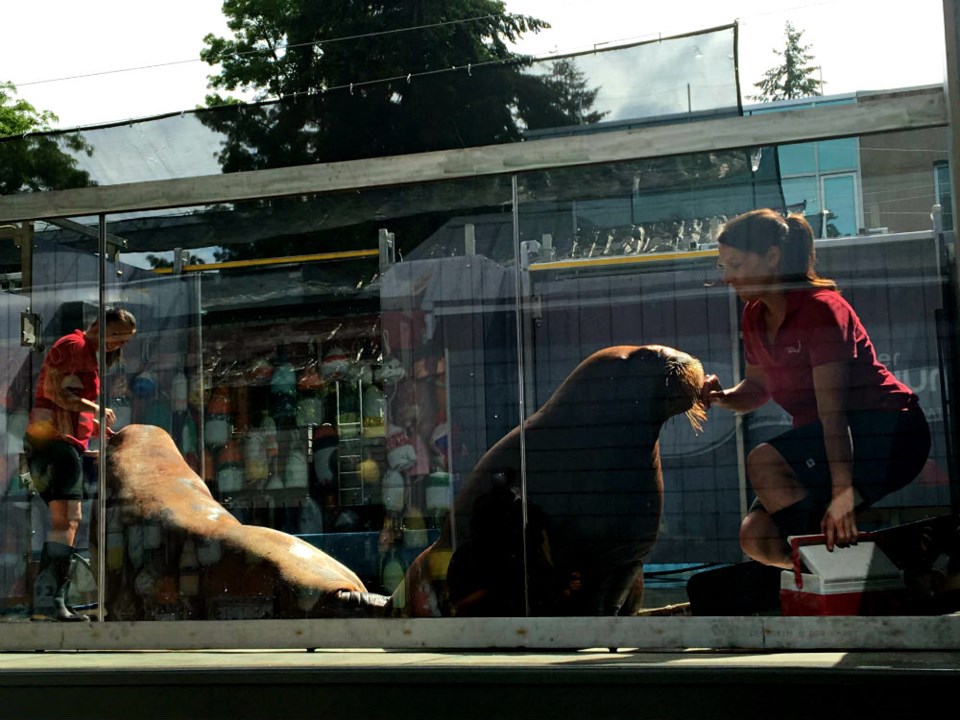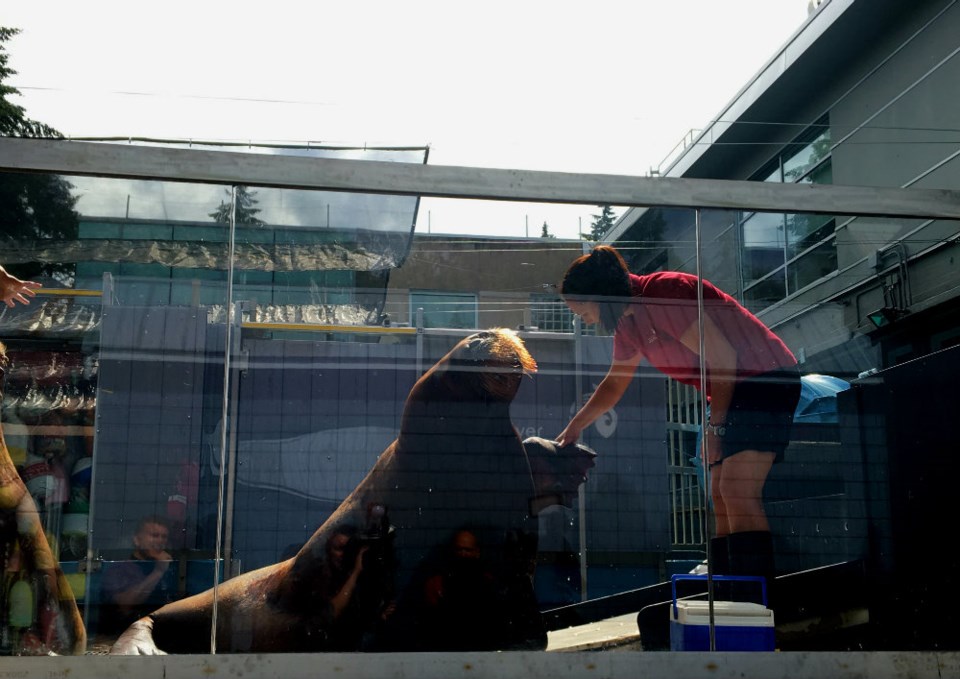 Photo Melissa Shaw
Photo Melissa Shaw
The public now has a chance to see two walruses, Lakina and Balzak at the Vancouver Aquarium's new Research Outpost exhibit and learn about the challenges wild walruses face due to climate change in the Arctic.
The two walruses are half-siblings, having the same father and different mothers. The animals were born weeks apart in May, 2016 at the Aquarium du Quebec and are the first walruses to be born in human care in Canada.
Lakina and Balzak arrived at the Vancouver Aquarium in December, 2017 and settled into their new home with the help of animal care teams from both facilities.
"These two-year-old walruses are curious and playful and every interaction with them is unique. Their response to our ever-changing training and enrichment sessions ranges from energetic enthusiasm to attentive exploration and everything in between," says Troy Neale, the aquarium's assistant curator of marine mammals.
Meeting Lakina and Balzak - two walruses the public can see when they visit @vanaqua pic.twitter.com/6PWhg3ZtQq
— Melissa Shaw (@Melissa_Shaw22) June 27, 2018
The walruses will be on display up to 10 times per day unless they are sleeping. "The longest they've slept since they've been here is 36 hours and that's pretty common for walruses. Some days they don't sleep and some days they sleep for two days," Neale says.
The female, Lakina, weighs 300 kg and the male, Balzak, weighs 400 kgs. The animals will gain approximately 15 kg per month and fully grown female walruses weigh between 1,250 to 1,700 kgs while males are larger, weighing between 2,700 kgs to 3,700 kgs.
Northern fur seals and stellar sea lions can also be seen at the Research Outpost throughout the day.
The aquarium's marine mammal trainers are working with Lakina and Balzak to develop learned behaviours that will facilitate baseline studies on walrus size, growth, metabolic rate and immune function.
Lakina and Balzak will be studied by University of British Columbia scientist-in-residence Dr. David Rosen. Rosen says wild walruses are impacted by the changes in Arctic sea ice that they need to raise their young, water temperature and increased shipping noise.
He says they will be trying to answer questions such as, "how much energy do they need? What nutrition do they get from different foods? How much energy do they need to grow? How can we measure the health of these animals in the wild?"
 Photo Melissa Shaw
Photo Melissa Shaw


